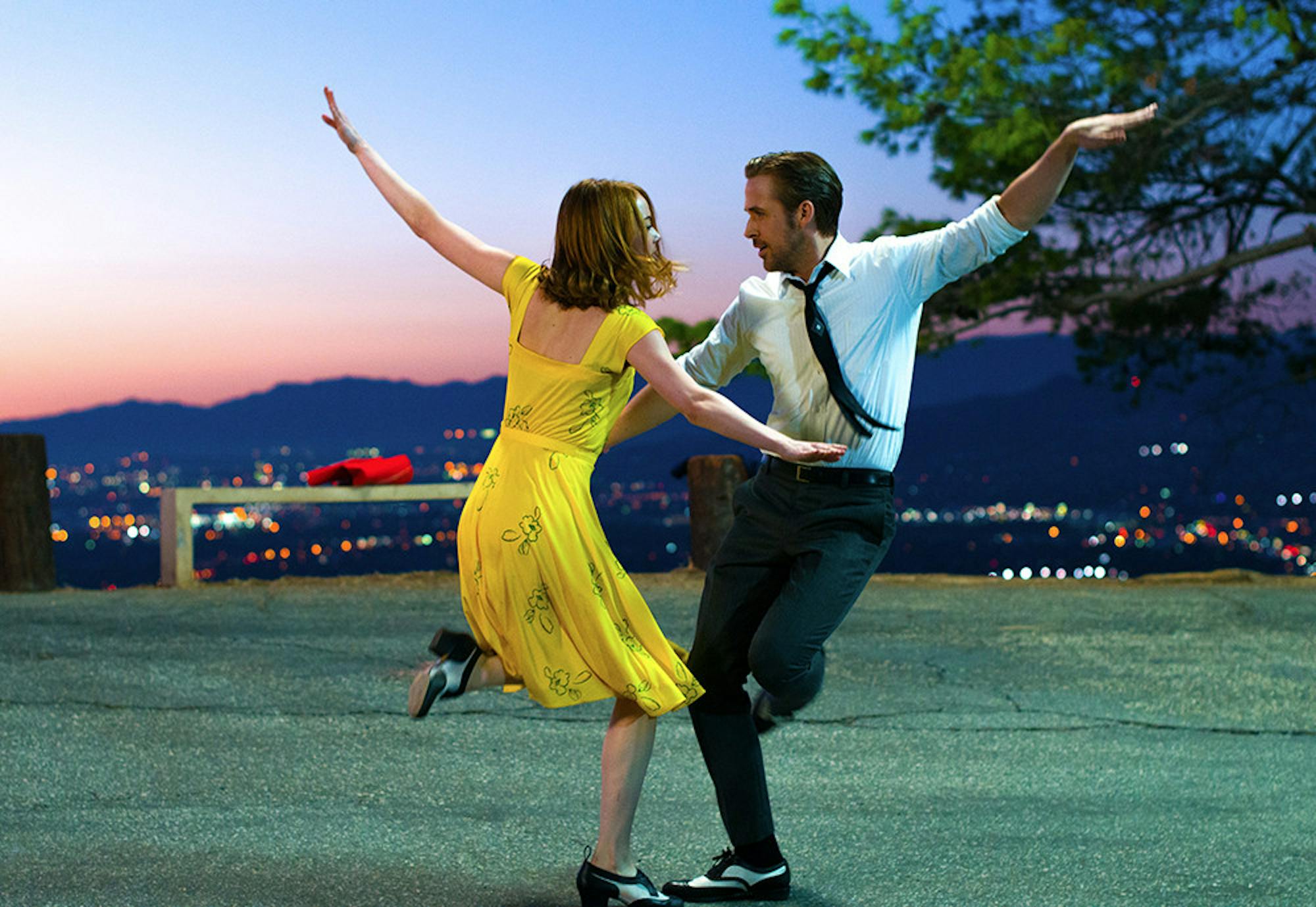Without question, one of 2016’s most charming movies (and critics’ favorite) is "La La Land," a modern-day musical written and directed by Damien Chazelle and released this past December. As awards season is underway, and "La La Land" collects numerous Golden Globe wins and Oscar nominations, the film continues to win hearts and minds. And not just those of crotchety old movie critics either, but also with younger audiences primed by "Glee" (2009-2015), Hamilton (2015) and other successes in musical-style entertainment.
New York Times film critic A.O. Scott calls "La La Land" “generationally authentic as a millennial document." The film attempts to retain the most attractive clichés from classic musicals (impromptu dance numbers and small-town girls with Hollywood dreams), while skillfully evading those that are just too much for the cynical youth to bear (true love). The balance gives the audience a pass for enjoying sappy duets and foreseeable plot twists.
The movie's lesson is frank. There’s nothing wrong with young love, even hopeful young love, and if those involved grow apart because of their ambitions and careers, that can be okay too -- even if the memories jerk a tear. Unfortunately, that lesson might disappoint some viewers. We only get the slightest glimpse of the later lives of Mia (Emma Stone) and Sebastian (Ryan Gosling), although we do see happy, successful futures. The problem is that Mia and Sebastian’s imagined, dream-sequence future together looks even better, even though their lives together would have only gotten rockier with the growing distractions of their careers.
After all, why shouldn't an aspiring actress be able to have it all? If Mia and Sebastian had just stayed together, they could have found success and kept each other all along instead of settling for other partners, or none at all. Yet it’s clear that they couldn’t have lucked out with their relationship — and careers — at the same time. Throughout the movie, their relationship is complicated more and more by their professional achievements, and their only similarities in the first place were those of all young, romantic, starving artists.
'La La Land' is a far cry from Chazelle’s stunning 2014 film "Whiplash," which received a due nod at awards ceremonies, but never became the blockbuster hit that "La La Land" is now. Chazelle’s "Whiplash" follows the same logic, but with a distinct attitude. Protagonist Andrew Neiman (Miles Teller) gives up every part of his life, self and sanity to become a great drummer, and by the end it’s not clear whether Andrew's pain is from loss or growth. Gritting through scene after vicious scene, we see all the turmoil and all the fanatic satisfaction that makes everything worth it, to him at least. "La La Land" depicts a much more pleasant journey towards success, but also a less revealing one. Some good things remain, some are lost, but in the end, everything works out. In "Whiplash," everything and nothing works out all at once, leaving us unsure as to Andrew’s success.
With Mia and Sebastian’s story, that kind of enigma is missing. It’s a musical, and more of a "Singin' in the Rain" (1952) than a "Rent" (2005) style one at that. The realism twist doesn’t provide interest, only a romantic wistfulness, fluttering in for its own last musical number and then out again, to return us to reality.
The film seems proud of itself for centering the plot around careers as much as relationships, and yet if this were the case, wouldn’t a threat to Mia’s or Sebastian’s livelihoods be more upsetting and therefore more interesting? It seems there’s not enough at stake to grab the new, cynical, career-driven generation as Scott suggests.
It’s understandable that Chazelle wants to stay true to the optimism of classic musical theater (especially after the weightiness of "Whiplash"), but the “millennial document” might need to prepare its viewers for real heartbreak and a greater incentive to leave a man who looks like Ryan Gosling. Millennials don’t need to run from the battles and tragedy of life. Without life’s tragedies, life’s positive turns wouldn’t seem so wondrous anyway.
'La La Land' is what we want but not what we need






